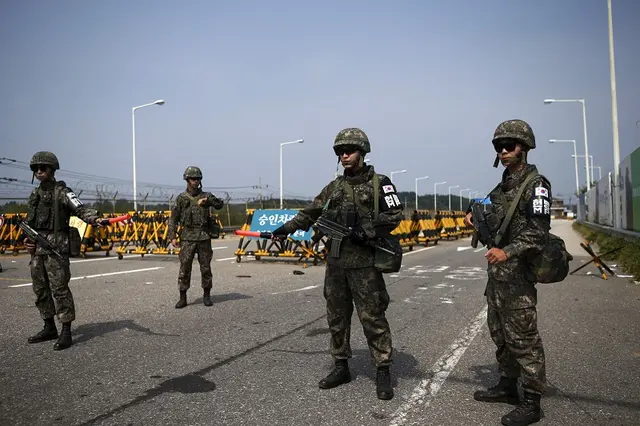Tensions have been escalating on the Korean Peninsula with the test-launch of an intercontinental ballistic missile on July 4 by the Democratic People's Republic of Korea (DPRK) and a combined ballistic missile exercise a day later by the United States and South Korea aimed at sending Pyongyang a warning.
But there's one simple way to diffuse tensions on the peninsula and in the region, and that is both sides showing restraint.
On Saturday, Joe Dunford, chairman of the U.S. Joint Chiefs of Staff, said the DPRK is able to launch a "limited" missile attack and the United States stands ready to defend itself, South Korea and Japan should such an event occur.
At present, there's a dire need for all sides concerned to refrain from actions that may worsen an already fragile and complicated situation. A peaceful settlement must be reached through dialogue and consultation.
The root cause of the nuclear issue on the Korean Peninsula is, as political analysts have pointed out, mutual strategic suspicions between the DPRK and the United States.
For Pyongyang, it needs to stop its nuclear tests and understand that by repeatedly violating its non-proliferation obligations, it is increasingly isolated itself with the international community, and putting the peace and stability of the whole region at risk.
For the United States and its allies in the region, they need to put an end to their joint military exercises, and make a convincing case about their proclaimed commitment to stability on the Korean Peninsula and beyond.
As history has shown, hawkish responses and pressure tactics by Washington and Seoul are unlikely to succeed in subduing Pyongyang's nuclear ambitions. On the contrary, they would help harden Pyongyang's resolve to go further in its pursuit of nuclear capabilities.
China, as a close neighbor and a staunch supporter of peace on the Korean Peninsula, has made tremendous efforts to help settle the crisis in a peaceful manner.
Beijing has proposed a dual-track approach of advancing denuclearization and establishing a peace mechanism in parallel, which meets both the ultimate goal of denuclearizing the peninsula and Pyongyang's security needs.
It also advocates a "double suspension" concept, which requires Pyongyang to suspend its missile and nuclear activities in exchange for the suspension of large-scale U.S.-South Korean military drills.
It is imperative that all sides concerned exercise their maximum restraint and work jointly for an early resumption of the long-stalled six-party talks, which still stands out as the most promising way out of the decade-old security conundrum.
What the U.S. and the DPRK must bear in mind is that dialogue and negotiation instead of confrontation and trading barbs are the optimal means to eventually solving the nuclear crisis on the Korean Peninsula.
 简体中文
简体中文

